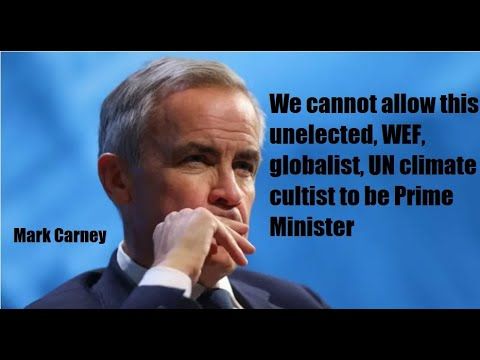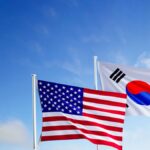Table of Contents
Mark Carney’s recent electoral victory as Canada’s new Prime Minister has set the stage for a significant shift in the nation’s political and economic landscape. His win represents more than just a change in leadership; it marks a pivotal moment for Canada’s relationship with its largest trading partner, the United States. Carney’s rise to power comes amidst a backdrop of growing U.S. protectionism under President Donald Trump, and his leadership could play a key role in shaping the future of U.S.-Canada trade relations.

A Strong Mandate for Change
In late 2024, Prime Minister Justin Trudeau’s government faced steep criticism due to his growing unpopularity, which resulted in a near landslide loss to Conservative rival Pierre Poilievre. However, the return of President Trump to the White House fundamentally altered the political landscape, rallying Canadians behind the Liberal Party for a rare fourth consecutive term. Mark Carney, previously a central banker in both Canada and the UK, emerged as the face of the new Liberal leadership, securing overwhelming support within his party. His leadership is seen as a strong counter to Trump’s protectionist policies, positioning him as the ideal candidate to manage Canada’s complex relationship with the U.S.

The History of Canada-U.S. Trade Ties
Canada’s relationship with the United States has long been defined by trade. From the fur trade in the 19th century to the creation of the international trading system, Canada’s economic interests have historically leaned towards its southern neighbor. However, this relationship has often been fraught with challenges. Canadians have long debated whether to integrate more deeply into the U.S. market or maintain a more independent stance on the global stage.
Over time, the pendulum has swung between deeper integration and caution. The landmark Canada-U.S. Free Trade Agreement (FTA) of 1988 under Conservative Prime Minister Brian Mulroney and U.S. President Ronald Reagan marked a significant shift towards closer economic ties. But the process of embracing free trade was not without resistance. The Liberal Party, then under the leadership of Jean Chrétien, had previously opposed such an agreement, warning that Canada could lose sovereignty over vital sectors like healthcare and energy.
Fast forward to the present day, and Canada finds itself in a similar position of ambivalence as U.S. protectionism rises again under Trump’s leadership. With the U.S. imposing tariffs and threatening economic warfare, Carney’s victory signals a return to a more assertive, proactive stance in managing Canada’s trade policies.

The Impact of Trump’s Protectionism
Trump’s return to power has already led to heightened tensions between the two countries. During his first term, he threatened Canada with tariffs across various sectors, including steel and aluminum, unless Canada took action on issues like illegal migration and drug trafficking. His demands were nothing short of aggressive, with some even suggesting that the U.S. aimed to weaken Canada economically and politically.
Carney’s election promises a tough stance against Trump’s tactics. The new Prime Minister has promised to take a more assertive approach to trade negotiations, emphasizing Canada’s sovereignty while ensuring a strong, mutually beneficial relationship with the U.S. This approach is vital as Canada seeks to navigate the growing pressure from Washington while preserving its own economic interests.

Canada’s Quest for Diversified Trade Partners
While Carney’s government has committed to maintaining a strong trading relationship with the U.S., the country is also exploring ways to diversify its economic partnerships. Carney has already pledged to invest in new infrastructure and trade agreements that can reduce Canada’s dependency on the U.S. market. However, this strategy faces significant challenges, especially considering that 75% of Canada’s exports still go to the U.S.
Carney’s first foreign trips as interim Prime Minister were to Britain and France, signaling an intention to strengthen Canada’s ties with Europe. He has also proposed seeking new trade relationships with countries like China and India, although these markets present their own set of challenges. Canada’s recent diplomatic rift with China, coupled with tensions with India over allegations of interference in domestic matters, complicates the path forward.
One of Carney’s most ambitious proposals is to remove internal barriers to trade within Canada itself. By doing so, he believes Canada could increase its economic output by 4 to 8 percent and reduce trade costs by 15 percent. This strategy could be a vital step toward building a more robust and self-sustaining economy, but Carney will need to overcome significant political and regulatory obstacles to make it a reality.

A New Chapter in U.S.-Canada Relations
Mark Carney’s victory brings a new level of optimism for Canada’s future in global trade. His leadership promises a mix of diplomacy and pragmatism, ensuring that Canada remains competitive while asserting its sovereignty. At the same time, his government will need to carefully navigate the tensions with the U.S. as it seeks to maintain strong ties while exploring alternative trade relationships.
Carney’s journey is not just about countering Trump’s policies; it’s about reshaping Canada’s place in the world, balancing its historical ties to the U.S. with the need to build new partnerships. While the challenges are significant, Carney has the political experience and economic acumen to lead Canada through this tumultuous period.
Conclusion: The Road Ahead for Canada
As Prime Minister, Carney faces a unique challenge in managing Canada’s complex relationship with the United States. The road ahead will require careful navigation, as Canada seeks to maintain its sovereignty while ensuring its economic future remains secure. Carney’s leadership marks the beginning of a new chapter in U.S.-Canada relations, one that promises to be defined by strategic trade decisions and a commitment to building a resilient, diversified Canadian economy.
Author Profile
- Syed Tahir Abbas is a Master's student at Southwest University, Chongqing, specializing in international relations and sustainable development. His research focuses on U.S.-China diplomacy, global geopolitics, and the role of education in shaping international policies. Syed has contributed to academic discussions on political dynamics, economic growth, and sustainable energy, aiming to offer fresh insights into global affairs.
Latest entries
 GeopoliticsAugust 23, 2025Previewing the White House Visit of South Korean President Lee Jae Myung
GeopoliticsAugust 23, 2025Previewing the White House Visit of South Korean President Lee Jae Myung Middle East ConflictJuly 22, 2025Israel’s Deadly Attacks on Gaza: A Dire Humanitarian Crisis and International Calls for a Truce
Middle East ConflictJuly 22, 2025Israel’s Deadly Attacks on Gaza: A Dire Humanitarian Crisis and International Calls for a Truce Middle East & North AfricaJuly 20, 2025Israel Targets Damascus Amid Rising Tensions in Syria
Middle East & North AfricaJuly 20, 2025Israel Targets Damascus Amid Rising Tensions in Syria Middle East AffairsJuly 14, 2025An Open Letter from Gaza’s University Presidents: Resisting Scholasticide Through Education
Middle East AffairsJuly 14, 2025An Open Letter from Gaza’s University Presidents: Resisting Scholasticide Through Education



1 comment
Mark Carney’s election victory could bring significant shifts in U.S.-Canada trade relations. His leadership background and economic expertise suggest a focus on stability and strategic growth. It will be interesting to see how his policies shape cross-border trade agreements and economic cooperation. A strong, balanced approach could benefit both nations and reinforce their longstanding partnership.This is such a nice article.